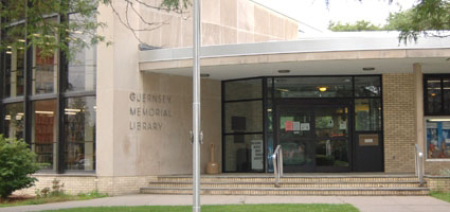PROGRESS 2021 – Commerce Chenango: The County’s Top Business Advocacy Organization Works To Move Chenango Forward
Published:
February 10th, 2021
By:
Melissa Stagnaro
 The staff of Commerce Chenango. From left, Joanna Cacciola, Economic Development and Grant Writing; Megan Brennan, Administrative Assistant and Program Aid; Kerri Green, President & CEO; Mary Miner, Director of Membership & Programs; and Audrey Robinson, Director of Communications and Tourism.
The staff of Commerce Chenango. From left, Joanna Cacciola, Economic Development and Grant Writing; Megan Brennan, Administrative Assistant and Program Aid; Kerri Green, President & CEO; Mary Miner, Director of Membership & Programs; and Audrey Robinson, Director of Communications and Tourism.
NORWICH – Commerce Chenango President and CEO Kerri Green had big plans for 2020. It would be Green’s first full year as head of Chenango’s largest business advocacy organization, and she had set lofty goals for herself and her growing team.
“I remember the Economic Outlook Breakfast, and talking with our attendees about all the wonderful things we were going to do and how excited we were to get started,” she said, recalling the February 2020 event at Canasawacta Country Club in Norwich.
According to Green, those plans included initiatives around workforce development, childcare, lodging and rural broadband. She was also keen to rebrand the organization; she’d taken the helm of just a few months earlier, following the retirement of her predecessor Steve Craig.
“Had we been ‘business as usual’ we would have hit the ground running that spring with event after event, networking, programs, visiting businesses and much more,” she said.
Instead, barely two weeks later, she and her team were forced to shift their energy and focus as the public health crisis posed by the spread of COVID-19 took center stage. As a former small business owner herself, Green was keenly aware of the threat this posed to Chenango businesses. She was determined to ensure her organization was in a position to help – as an advocate and as a resource – for businesses and organizations across the county.
“Throughout the spring and summer, we hosted over 15 webinars, many in collaboration with our county officials and with state representation,” she said. Those events were open to not just Commerce Chenango members, but any business or community member that could benefit from the information shared.
She and her team also counseled individual business owners and non-profits on funding opportunities, evolving state guidelines, the re-opening certification process and more.
In addition, they used their role as an advocacy organization to ensure that the voice of Chenango’s businesses was heard on the local, state, regional and federal levels.
“Commerce Chenango was uniquely poised to be a liaison between the state, the Chenango County legislature, Chenango County Department of Health and Emergency Services,” she explained. “We also served as the Chenango County representative in the Southern Tier Control Room and communicated daily with all Chenango County agencies on what was happening at the state.”
Ensuring Chenango’s ability to meet both the public health and potential economic impact of the pandemic required the forging of new partnerships, increased communication and trust.
“Collaboration is key in times like these. I am extremely proud of how we came together as a county, region and state,” Green said.
Commerce Chenango found other ways to be of service, as well. Perhaps the highest profile of those efforts was the Fueling the Frontline program. More than $10,000 was raised through the Chenango Foundation to fund the initiative, which provided meals from local restaurants to health care workers and emergency responders across the county. It was coordinated by Commerce Chenango’s Director of Membership & Programs Mary Miner, and helped both the struggling restaurant industry as well as showed appreciation for those working on the front lines against COVID-19.
“Fueling the Frontline was an amazing and humbling opportunity to give back to Chenango County in a meaningful way,” Green said. “We felt like we were making a difference and showing our appreciation during a dark time.”
One piece of advice Green gave to business and non-profit leaders often in the spring and summer of 2020 was to use the opportunity presented by the pause in ‘business as usual’ to look at their business model, budget, staffing and marketing.
“I felt it was important for businesses to take a step back and take a look at their organization as a whole,” she said. “When will we ever have this opportunity again to slow down; really look at our mission, operations and (business) model; and make changes?”
Green took her own advice and applied it to Commerce Chenango.
“It gave us time to think, as a team, about how we could do more for the businesses and overall economic future of Chenango County,” she said. “I had the opportunity to really look at our organization from the ground up to see where we did well and where we had gaps.”
One important result of that discovery process was a clearer sense of identity for Commerce Chenango, which serves as not just a chamber, but also an umbrella for Development Chenango Corporation, the Chenango County Industrial Development Agency, and the Chenango Foundation.
“Commerce Chenango is more than a Chamber of Commerce. We are the economic development arm of Chenango County. We work with businesses, developers, and our county, state and federal partners to advocate for progress in Chenango County,” Green explained. “We are poised to face any challenge, advocate for the needs of the county and we are always looking for opportunities to add to the local economy.”
She is particularly proud of the new branding she and her team developed around the organization’s purpose and mission.
“I love our new logo and website. Not only does it show teamwork from my entire staff, but it really represents who we are,” she said. “The logo really spells out who we are, what we do and how it connects: Chamber, Economic Development and Tourism.”
While COVID-19 is not yet in the rear-view mirror, Green and her team’s eyes are firmly on the future. What does that mean for the organization they lead, and for Chenango County?
According to Green, their top priorities include broadband access for all of Chenango County; increasing lodging opportunities; increasing access to childcare; connecting businesses and organizations with grant and other funding opportunities; creating an attractive portfolio of Chenango County to attract industries; and continued outreach and collaboration with local, state and federal partners.
The biggest challenge, she said, will be helping businesses “get back to business.” This is particularly true for the tourism properties, entertainment industry and the festivals and events that draw thousands of people to the community each year.
“From the General Clinton Canoe Regatta, to the Antique Rollers, Colorscape Chenango, Music in the Park, the Chenango Blues Festival, Classic Car Cruise-ins and so many other outdoor festivals, events, street fairs and concerts, tourism is a huge part of what makes Chenango County special,” Green said.
Many of these festivals and events are still in limbo for 2021, and she said she worries about how that will impact not only the events themselves but other businesses that rely on the visitors they draw – including lodging, restaurants, retail and more.
“A question that needs to be considered is, ‘How can Chenango County position itself to have a successful, even if lighter, tourism season this spring, summer and fall?’”
While the lingering effects of COVID will no doubt present challenges across industries, it has also helped Green see new opportunity in what some might consider Chenango’s oldest asset: the county’s rural geography.
“We are uniquely positioned to take advantage of those people and businesses who no longer want to be in bigger cities,” she said.
Commerce Chenango’s new Economic Develop-ment Assistant and Grant Writer, Joanna Cacciola, has been tasked with updating Chenango County’s property profile on an online system called StateBook, which is used by developers and investors considering locations for future investment.
“Having a large portfolio of these available spaces will entice these developers to visit our county,” Green said. “Once we get them here, I know we can sell the area – which means jobs, opportunities and local investment in our economy.”
Author: Melissa Stagnaro - More From This Author
Comments







